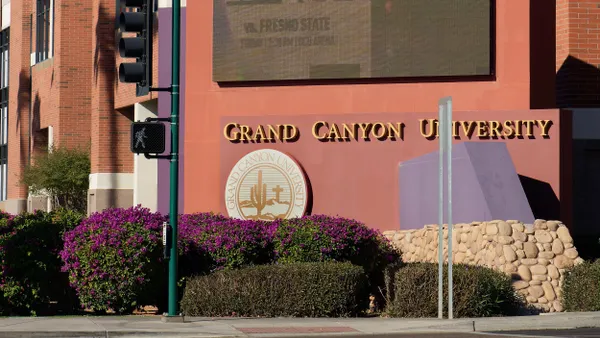Dive Brief:
- A change to federal student loan forgiveness announced in December by U.S. Education Secretary Betsy DeVos has been reversed by a federal district court in California, which has ordered the agency to stop using income data to determine if students with claims against the now-defunct Corinthian Colleges are eligible for refunds according to the Sacramento Bee.
- DeVos argued last year that a number of students who accused Corinthian of fraudulent practices would likely leave much of their loan repayment obligation to taxpayers, and that income assessment was necessary to determine proper levels of loan forgiveness. Critics said that employment would spur the department against making full loan forgiveness, essentially punishing students for working after receiving little to no return on investment from pursuing a for-profit college degree.
- Calling the Department’s practice a violation of student privacy, the court will hear additional testimony in the coming weeks to make a determination on if students in the class action lawsuit against the agency should receive full loan forgiveness.
Dive Insight:
The Trump Administration’s legacy on borrower defense, much like its travel ban, is finding opposition in the legal system. And the confusion on where these policies may eventually stand may cause confusion in the higher education marketplace and force changes which could dramatically shift enrollment, federal resources and tuition revenues in the years to come.
If full loan forgiveness is granted to the more than 100,000 class action claimants against the department, (and controversy around how the policy was crafted may not help) it may reinforce standards of student protections created under the Obama Administration, which could create further difficulty for a Republican-controlled Congress to consider movement on state authorization for distance learning programs and hamper for-profit resurgence and non-profit online degree expansion alike.
Additionally, intended consequences for predatory for-profit institutions could create unintended harm for other institutions. Institutions with open access missions have to balance retention and completion casualties that accompany them, or they could become the next targets for rulemaking on loan forgiveness and career outcomes.












